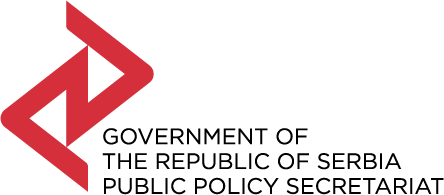The Prime Minister of the Republic of Serbia Ana Brnabic stated that simplification and digitalisation of administrative procedures save the business sector and the state administration time and money and, what is more, they also diminish the possibility of corruption. At the opening of the conference ‘e-Paper – Reduction of Administrative Burden’ Brnabic emphasised that the ‘e-Paper’ project had been implemented in Serbia for two years, its objective being to catalogue and digitalise all administrative procedures and other business conditions. She also stressed that it was an ambitious and complex task but that the Government would be persistent in its implementation.
‘Small and medium-sized enterprises in Serbia benefit most from the process. Large companies have their own big legal teams and do not face these problems but nascent enterprises, entrepreneurs, and small and medium-sized enterprises are sensitive to red tape and forever faced with a request for an additional paper’, the Prime Minister said.
She added that in this way a signal is sent that a robust and efficient economy is primarily based on the economy of entrepreneurs and small and medium-sized enterprises.
The Prime Minister also stressed that she had checked how the process of abolishment of stamps was evolving, saying that there was still resistance on the part of public administration.
Having said that, the Prime Minister promised that by the end of the Government’s mandate the stamp would be abolished.
Head of EU Delegation in Serbia Sem Fabrizi stated that Serbia had made progress in many areas and that the progress, in particular the economic one, was acknowledged by other international institutions as well, such as the World Bank.
Fabrizi also added that in public administration there were a lot of segments asking for reforms and improvement.
The reform of administrative procedures for small and medium-sized enterprises is indeed a key one. Both in Serbia and in the majority of EU states small and medium-sized enterprises account for 99% of all the business entities that employ two thirds of employed citizens, Fabrizi underlined.
He also reminded that the EU had been the major donor in the area of small and medium-sized enterprises since 2001, and that during the 17 years it had donated 110 million euros in this area only.
‘The project we have talked about today is worth 2.5 million euros. We will be reviewing all the 2,500 regulations catalogued, we will be focusing on the 30% of the most important ones, and we will continue our work in that particular area’, he said.
British Ambassador to Serbia Denis Keefe said that he expected reforms would bring about the improvement of the business climate and that around 50 procedures would be simplified and abolished, which would result in the savings of 20 billion dinars.
Acting Director of the Public Policy Secretariat Bojana Tosic said that the project had lasted for two years and that the objective was to systemically work on the reduction of administrative burden the business sector is faced with.
‘The final outcome of the project are online procedures for businessmen that can be fully carried out from the office’, Ms Tosic said.
Anticipated results of the ‘e-Paper’ project by 2021 are the establishment of the registry of all administrative procedures, optimisation of 500 most frequent and most expensive procedures, digitalisation of 100 procedures for the issuing of licences, consents, etc. as well as the reduction of administrative costs the business sector is faced with by the minimum of 15% (from the current 3.46% to 3% of GDP).
So far this project of the Government of Serbia has involved 84 institutions of public administration on the republic level and around 2,500 administrative procedures have been catalogued, while all the procedures have been uniformly described and entered into the electronic database.
The Public Policy Secretariat is the coordinator of the project while the Ministry of Economy will be officially proposing the legal framework for its enforcement.

